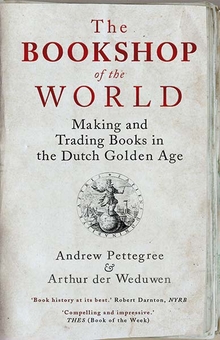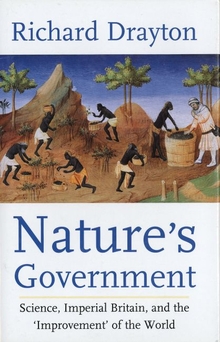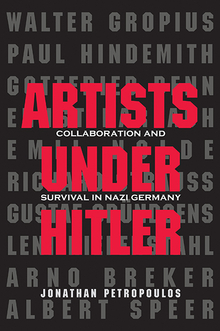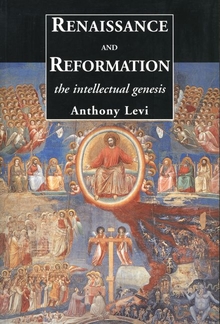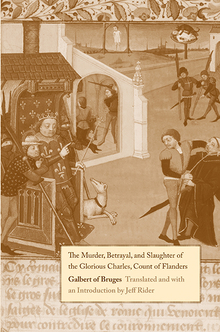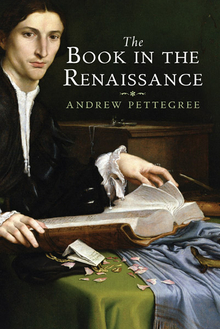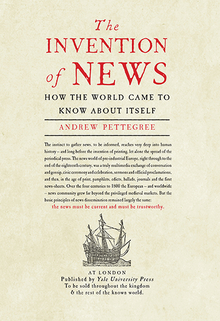The Bookshop of the World
WARNING
You are viewing an older version of the Yalebooks website. Please visit out new website with more updated information and a better user experience: https://www.yalebooks.com
Making and Trading Books in the Dutch Golden Age
Andrew Pettegree and Arthur der Weduwen
The untold story of how the Dutch conquered the European book market and became the world's greatest bibliophiles—“an instant classic on Dutch book history” (BMGN - Low Countries Historical Review)
"[An] excellent contribution to book history."—Robert Darnton, New York Review of Books
In this fascinating account, Andrew Pettegree and Arthur der Weduwen show how the Dutch produced many more books than pictures and bought and owned more books per capita than any other part of Europe. Key innovations in marketing, book auctions, and newspaper advertising brought stability to a market where elsewhere publishers faced bankruptcy, and created a population uniquely well-informed and politically engaged. This book tells for the first time the remarkable story of the Dutch conquest of the European book world and shows the true extent to which these pious, prosperous, quarrelsome, and generous people were shaped by what they read.
Andrew Pettegree is professor of modern history at the University of St. Andrews and director of the Universal Short Title Catalogue. Arthur der Weduwen is a researcher at the University of St. Andrews.
“The Dutch Republic during the 17th and much of the 18th century was indeed the "bookshop of the world". In fact, as Pettegree and Der Weduwen show in this excellent account, publishing, newspapers, importing and exporting books and the wider book trade with its published catalogues and book auctions were one of the most innovative and important aspects of the Dutch Golden Age.”—Jonathan Israel, author of The Dutch Republic
“Offers a fresh understanding of the fundamental importance of print in early modern Europe. Alert to the growing interdependence of money and power, and searching out evidence for the existence of long-lost public announcements and news sheets as well as books and engravings, Pettegree and Der Weduwen reinterpret the formation of the information system supporting the rise of the Dutch Republic, a grand exemplar of the new commercial state. It is a remarkable achievement.”—Harold J. Cook, author of Matters of Exchange
“All printed matter and its makers is grist for the finely grinding mill of Pettegree and Der Weduwen. Their pioneering research feeds into every last field of study in the Dutch seventeenth century, and via the Netherlands into the rest of the literate world. This is a far larger and lesser-known territory than the familiar Republic of Letters, and fuller of surprises.”— Gary Schwartz, author of Rembrandt's Universe
"[An] excellent contribution to book history."—Robert Darnton, New York Review of Books
“An instant classic on Dutch book history”—César Manrique Figueroa, BMGN - Low Countries Historical Review
"A fascinating and much-needed study. . . . The authors have presented us with a lively and nuanced three-dimensional view of the book industry and the Dutch Republic."—Nicole Greenspan, Seventeenth-Century News
“In this brilliant survey, Andrew Pettegree and Arthur der Weduwen show how Dutch bookmen conquered the European market. They also point out the importance of printed works in everyday life during the Dutch Golden Age, the long seventeenth century (ca. 1580–1700). . . . A great synthesis, which shows that book history cannot be neglected by anyone who wants to understand religious debates, economy,
social and political conflicts, or simply everyday life during the early modern period.”—Renaud Adam, Renaissance Quarterly
social and political conflicts, or simply everyday life during the early modern period.”—Renaud Adam, Renaissance Quarterly
“Not many books in the genre of the history of the book achieve the depth and clarity of The Bookshop of the World. . . . The authors provide a wealth of detail for the economics of the book trade and economic life in general. We must be grateful for their achievements.”—Margaret C. Jacob, Journal of Modern History
“Impressive . . . this book tells the fascinating story of how Dutch people shaped the printing industry and how the printing industry shaped the Dutch Republic.” —Erica Johnson Edwards, 1650–1850: Ideas, Aesthetics, and Inquiries in the Early Modern Era
ISBN: 9780300254792
Publication Date: September 29, 2020
Publication Date: September 29, 2020
496 pages, 5 x 7 3/4
70 color illus.
70 color illus.

